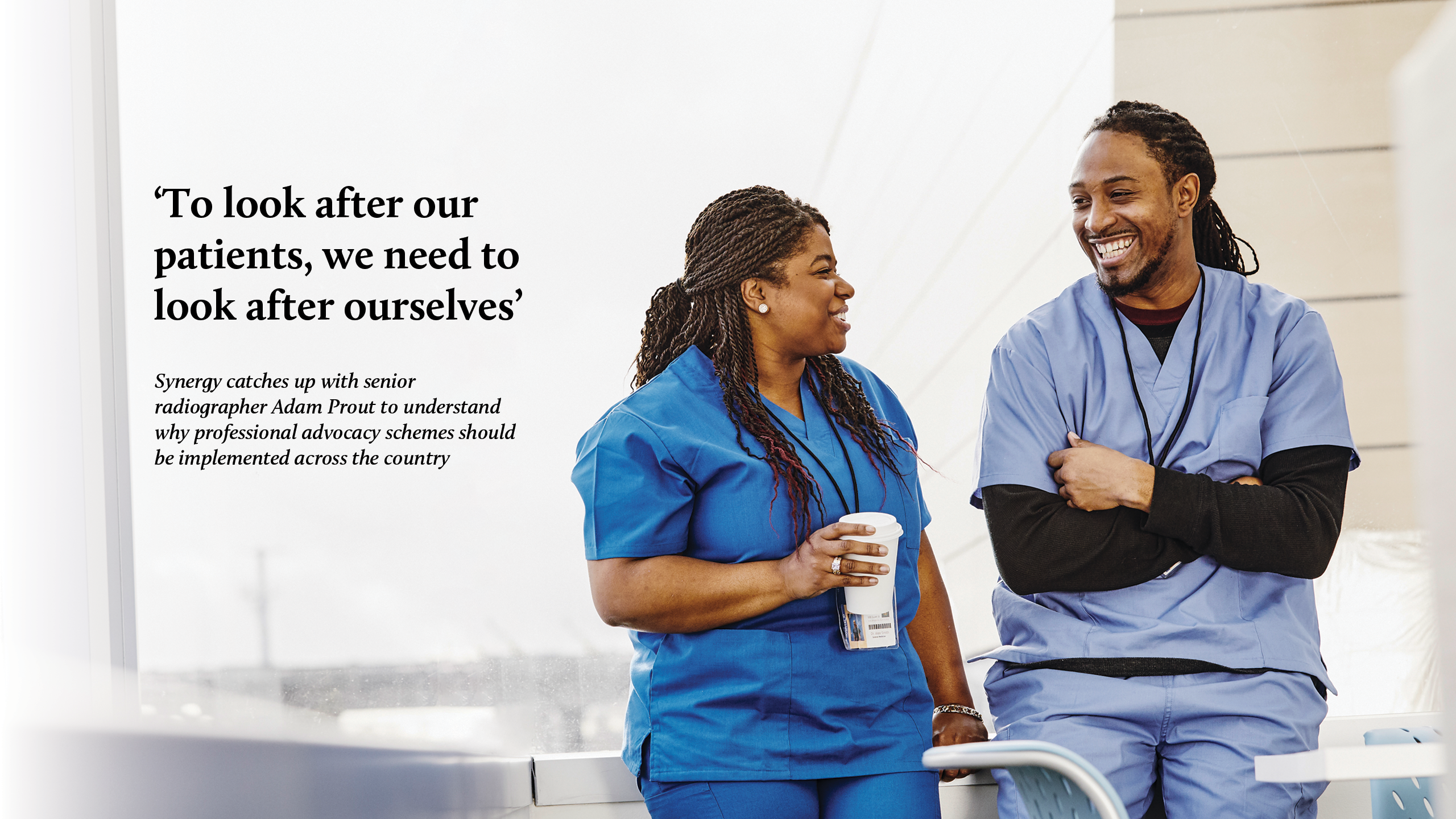
Adam Prout is one of the only radiographers in the UK with expertise in professional advocacy. His journey started with his own mental health struggles – he had suffered quite severely during the onset of the pandemic. “My mental health took an absolute battering at the start of Covid, just like everybody else,” he says. “So many people came up to me at that point saying I wasn’t myself. ‘You’re not the person we went off to uni with,’ they said. You want to say ‘back off, I’m fine, don’t worry about it’.
“But had this [professional advocacy] role been in place then; if someone had actually sat down with me for an hour and guided me to the answer myself of ‘I’m not OK’ – that would have been so revolutionary for me. It would have saved me so much time.”
Adam, senior radiographer of clinical governance and GP X-ray at Derriford Hospital in Plymouth, recently became one of only two radiographers in the UK to have completed a Master’s module in professional advocacy. Now he is implementing a scheme at Derriford to improve staff wellbeing, retention and patient outcomes.
Synergy sat down with Adam to understand just what professional advocacy is and what restorative clinical supervision means – and why he thinks it should be rolled out everywhere.
Adam Prout is one of the only radiographers in the UK with expertise in professional advocacy. His journey started with his own mental health struggles – he had suffered quite severely during the onset of the pandemic. “My mental health took an absolute battering at the start of Covid, just like everybody else,” he says. “So many people came up to me at that point saying I wasn’t myself. ‘You’re not the person we went off to uni with,’ they said. You want to say ‘back off, I’m fine, don’t worry about it’.
“But had this [professional advocacy] role been in place then; if someone had actually sat down with me for an hour and guided me to the answer myself of ‘I’m not OK’ – that would have been so revolutionary for me. It would have saved me so much time.”
Adam, senior radiographer of clinical governance and GP X-ray at Derriford Hospital in Plymouth, recently became one of only two radiographers in the UK to have completed a Master’s module in professional advocacy. Now he is implementing a scheme at Derriford to improve staff wellbeing, retention and patient outcomes.
Synergy sat down with Adam to understand just what professional advocacy is and what restorative clinical supervision means – and why he thinks it should be rolled out everywhere.
‘The biggest lesson I’ve learnt’
Adam’s mental health journey culminated in learning one key fact: “To look after our patients, we need to look after ourselves.
“That’s something we could all take a step back and make sure we’re doing. We work so hard, so we need to be looking after ourselves a lot better.”
Now, Adam has taken steps to make sure he can get started with supporting other radiographers in his trust to do just that.
Adam is a professional advocate at Derriford, a role that grants him eight hours of protected time each week to talk to his fellow radiographers about any issues they are having, stress they are feeling or goals they want to work toward. “That could be work stress. It could be home stress,” he explains. “It can go from career conversations right up to project improvement ideas, where the training I received on the course means that I’m able to use skillsets of emotional interviewing and the A-EQUIP model to really make it a reflective process.”
As part of this protected time, the interviewer and interviewee work on an action plan to get them from where they are to where they want to be – whatever that means. “Part of the problem of working in stressful jobs like we do is having to explain yourself,” he says. “That element is totally taken away. I’m doing exactly the same job as that person. Those boundaries have been broken down. I’m there just as a guide, to help that person answer their own questions.”
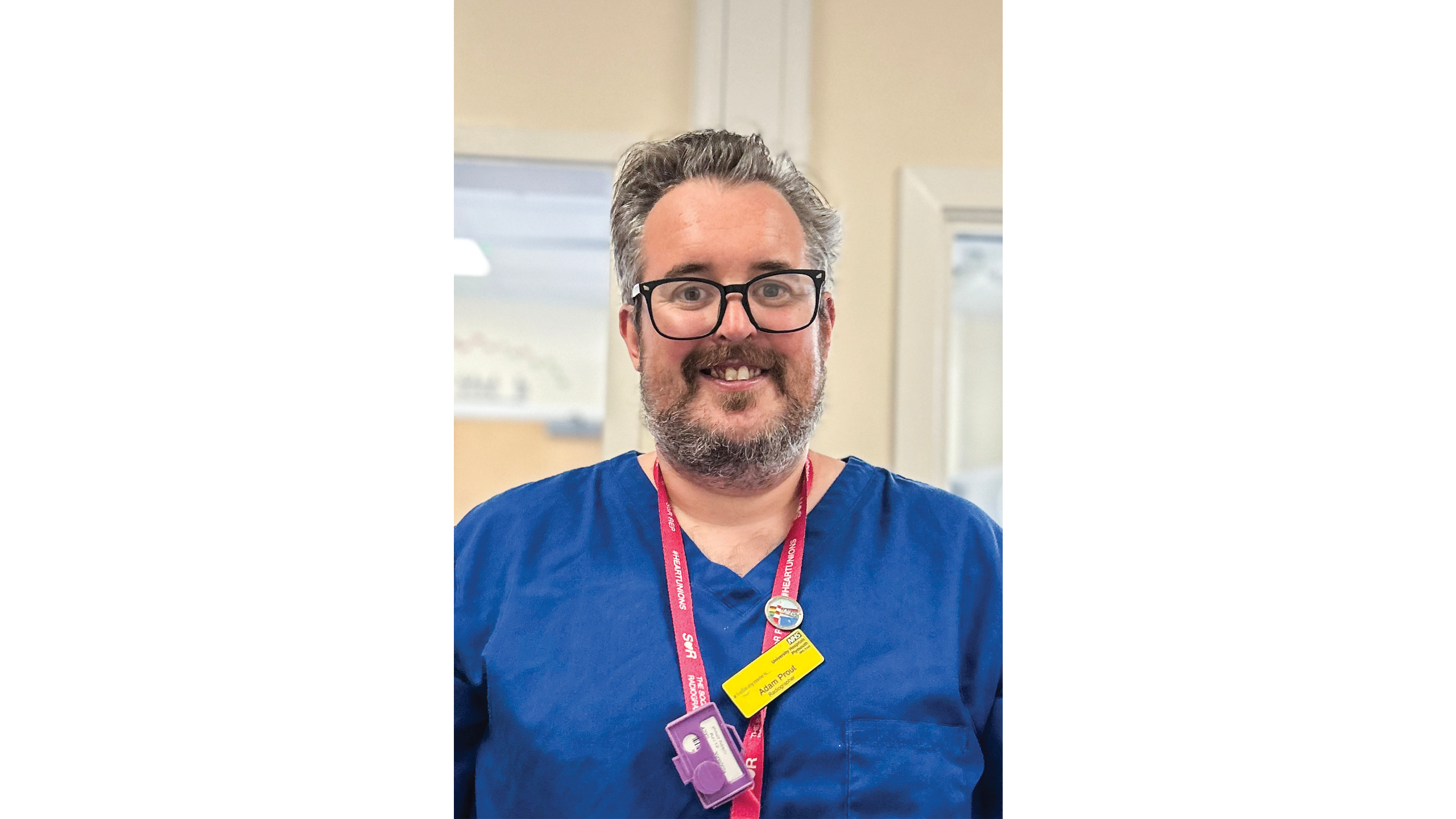
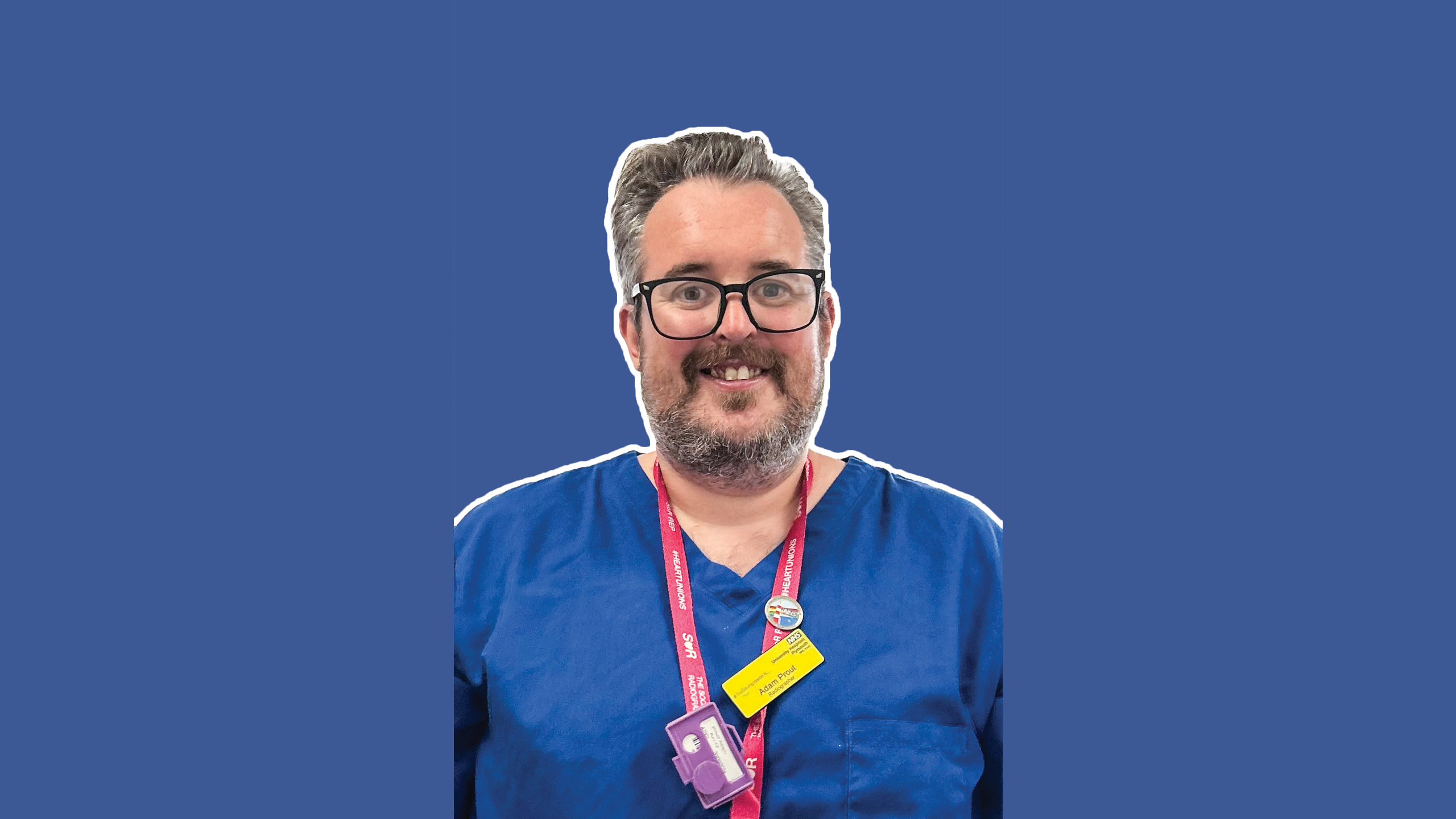
A new role
Adam’s work towards his role began on his trust’s neurodiversity staff help page, where he discovered that a 30-credit Master’s module for professional advocacy was on offer, helping staff learn techniques that would help them talk through issues with each other. He was part of the first intake of allied health professionals (AHPs) on the Master’s module at the University of Plymouth.
Upon discussion with his service line manager he was able to research the role further and discovered ring-fenced funding for AHPs to conduct the module at the university thanks to the trust’s lead professional nursing advocate, Chris Down. He started the course in November 2023, and completed lectures over video call for around eight weeks. This was the first cohort of AHPs across the country, and included physiotherapists and dietitians.
As part of the course, Adam completed a 3,000-word open essay on the subject and completed a portfolio of work across the four standards associated with the A-EQUIP model (advocating and educating for quality improvement), which is a method of professional leadership and clinical supervision. Importantly, Adam explains, the model uses ‘restorative clinical supervision’ (RCS) to ensure effective leadership within departments.
Once completed, Adam wrote up a business plan for the management of the radiography department, where he was allowed a six-month trial to offer restorative clinical supervision to radiographers. Management has since asked him to extend the trial to the wider radiographic team, including CT, MRI and ultrasound.
Adam doesn’t have an official title, because AHPs have no office titles within professional advocacy – but he expects this to come later.
In his own department, the professional advocacy team has been extended, with radiographers Leah Grove and Lee Major enrolling on the University of Plymouth Master’s module in October 2024.
Adam is also working alongside the Society of Radiographers to start rewriting its Clinical Supervision Framework based on the training he has received.
What is restorative clinical supervision?
RCS “involves the development of open discussion space and supporting the professional to undertake reflective conversations and open feedback”, and promotes reflection of personal emotions and practice.
It also has a positive impact on emotional wellbeing, provides a strategy to mitigate workplace stress, enhances retention and assists with the management of personal and professional demands, according to the Royal College of Nurses.
A review of RCS practices found that it improves the mental health and wellbeing of staff: it reduced burnout by 43 per cent (from 42.81 to 24.71) and stress by 62 per cent (from 43.35 to 16.86) from regional baselines.
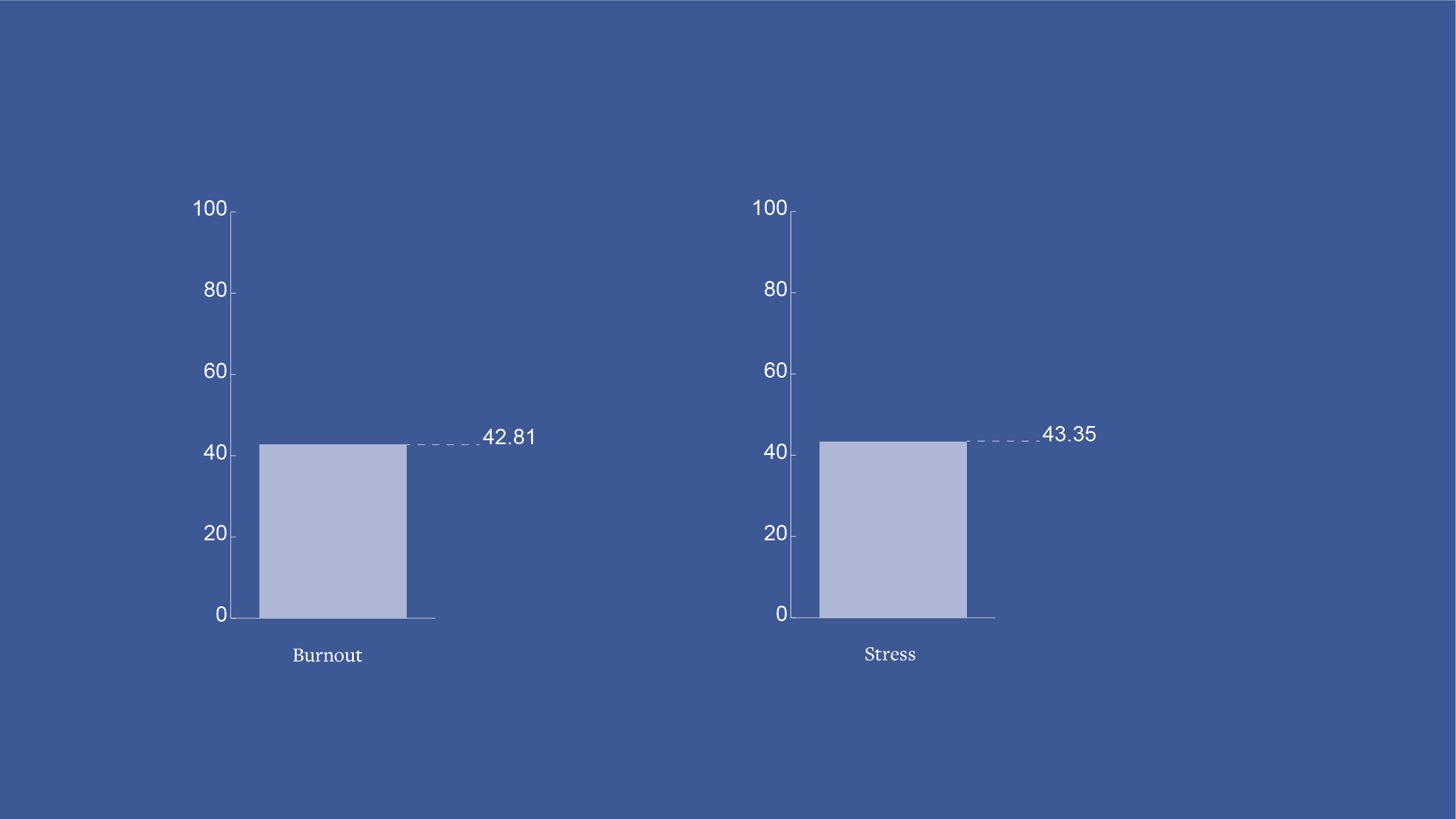
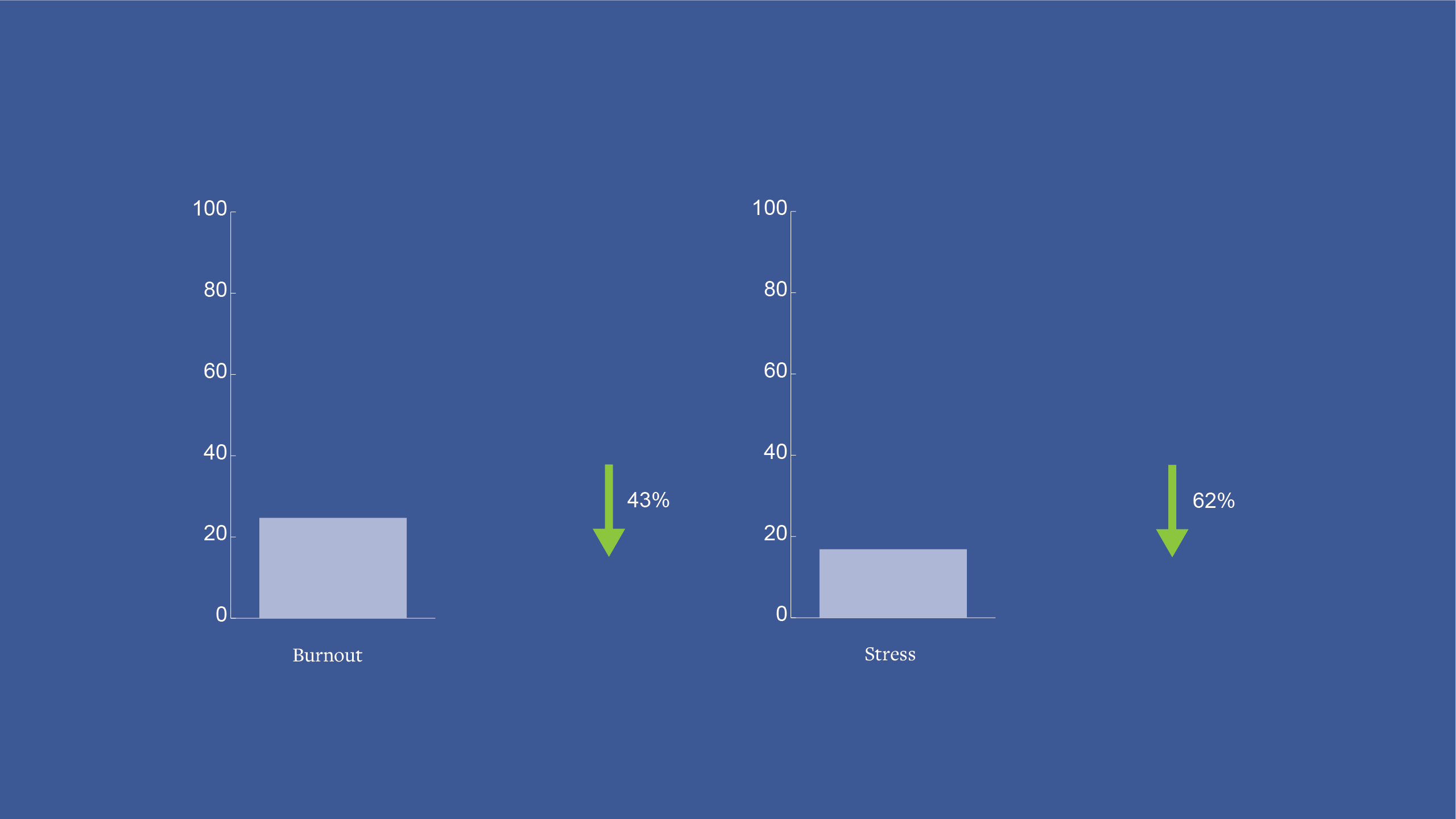

Using his training in this model, Adam has been able to support his fellow staff, reduce burnout and increase professional satisfaction.
RCS training focuses on addressing the emotional needs of staff and supporting the development of resilience, Adam explains. This helps them to take back ownership of their role and implement changes that can help them, because the model is based on the principle that the best people to help improve projects and make patients’ pathways better are the people on the ground.
A broader impact
While the research is brand new for radiography, Adam emphasises the importance of people understanding the notion of professional advocacy and RCS. He points out that the debriefs that occur immediately after stressful situations in hospital settings often do not include radiographers, perhaps because radiography’s involvement with such situations could be “limited” – but says these “still have an effect on our mental health”. “This is something we can really look at together and start to prevent people leaving the profession.”
Current workforce crises in radiography are a key reason to adopt professional advocacy throughout trusts in the UK, says Adam: “I think it could have a huge impact. We really need to look at changing the way we operate in the role. We’re losing so many members of the profession and we need so many more radiographers to keep up with expected demand.
“This could be a real key pillar of keeping the staff we have, keeping them happy, keeping them engaged, and really helping to make radiographers central to improving patient pathways.”
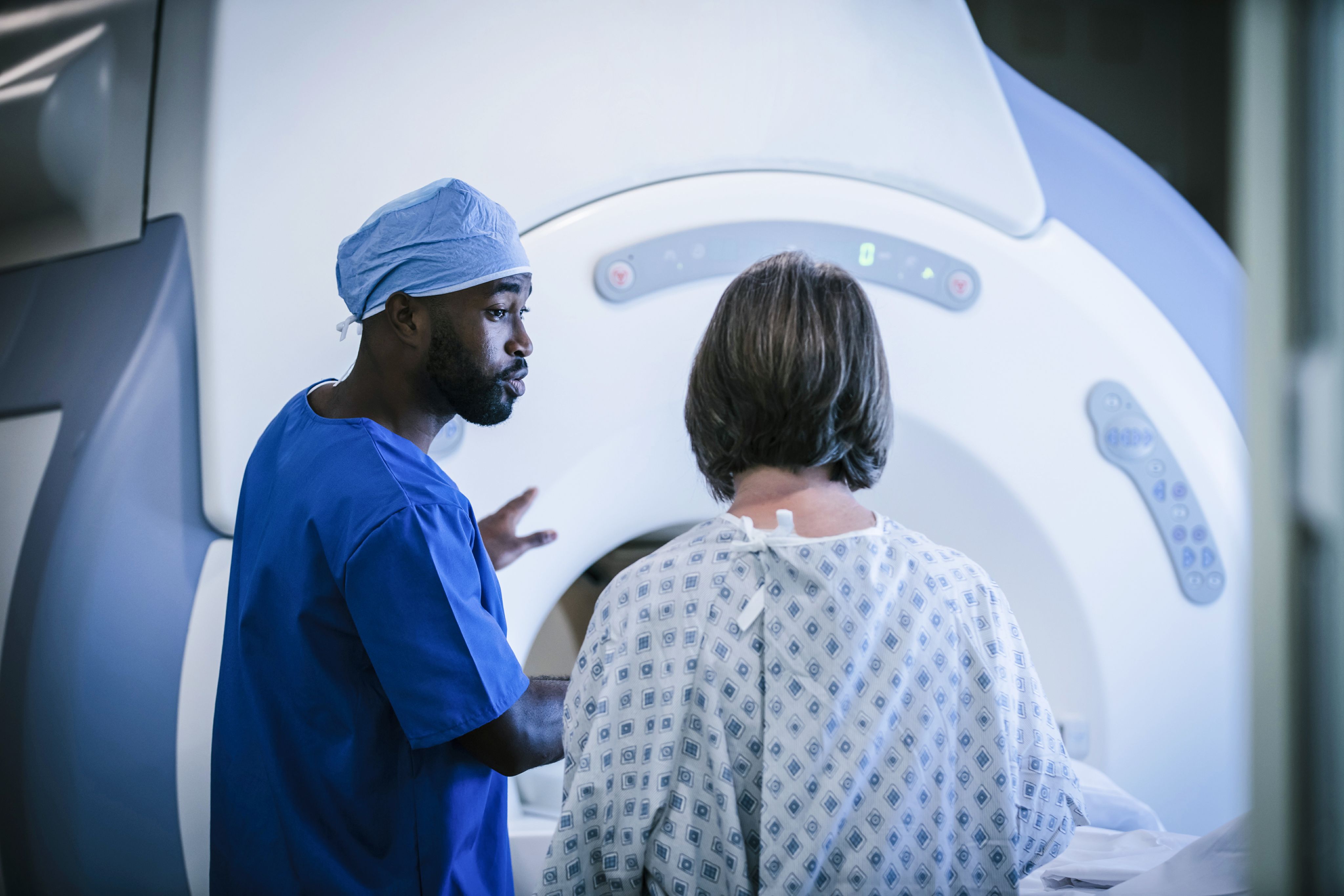
Origins and implementation
The A-EQUIP model of supervision is developed from common clinical supervision framework Proctor’s Model, laid out in the Routledge Handbook of Clinical Supervision. This model was first implemented by midwives, following an evaluation of several high-profile failings within midwifery services – the result of which was the decision that statutory supervision was no longer deemed suitable or fit for practice. In response to the action around statutory supervision, the A-EQUIP model was introduced in April 2017, with professional midwifery advocates replacing statutory midwifery supervision.
At the end of the third wave of Covid-19 in 2021, NHS England launched the professional nurse advocate (PNA) training programme. Luckily, Adam’s trust – University Hospitals Plymouth NHS – was already a significant advocate of the model within nursing.
The four elements of A-EQUIP are:
- Advocating for patients and healthcare staff
- Provision of restorative clinical supervision
- Personal action for quality improvement
- Promotion of education and development
For radiographers looking to implement such a role and scheme in their trusts, Adam advises finding the resources through online guidelines. Once radiographers have gotten to grips with what they need to do to implement the professional advocacy service, he suggests speaking to service leads and line managers to highlight why this project is important. “There’s so much research to demonstrate that it reduces burnouts and dramatically improves job satisfaction,” he says.
More about professional advocacy
Radiographers interested in learning more about professional advocacy can find details about its application within nursing here.
Training courses for professional advocacy within healthcare are offered in various learning institutions around the country – Adam’s course can be found here.
Image credit: Getty Images
Read more



